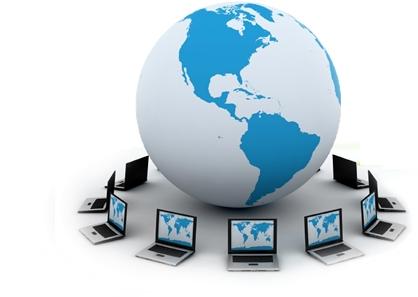
The Internet is a vast network that connects many independent networks spanning over 170 countries in the World. It links computers of many different types, sizes, and operating systems, and, of course, the many people of those countries that use the Internet to communicate.
The one thing all these different computers have in common is the use of the Internet Protocol, abbreviated as IP, which allows computers of different types to communicate with each other. You will often see reference to the longer abbreviation, TCP/IP, which stands for Transmission Control Protocol/Internet Protocol. Your own computer uses TCP/IP software to enable it to link to this service.
What can I do on the Internet?
There are a lot of answers to this question.The Internet Protocol makes it possible for you to communicate in various ways, find things that interest you, and exchange information and files. The most common things you can do are:
exchange information and files. The most common things you can do are:
- Get information on almost any subject by searching the web. It takes some skill to search efficiently, and since anyone can publish just about anything, there is lots of misinformation on the web, too. You need to develop some skill in evaluating the accuracy and reliability of the information you find.
- Send and receive email or chat or exchange messages with people all over the world. Almost as fast as the telephone, there is never a busy signal, and you never play phone tag.
- Join discussion groups about a common subject with message boards, Newsgroups and email discussion lists.
- Get or exchange software and files with the File Transfer Protocol (FTP)
- Explore the World Wide Web, which can use all of the above, and adds easy links to other resources and adds multimedia--graphics, sound, and video capabilities.
- Publish your own material on the web in blogs, message boards, or your own web pages.
Who Owns the Internet?
No organization, corporation or government owns or runs the Internet. Instead, many people and organizations voluntarily participate in task force groups who meet to develop standards for the many various technical needs of running the Internet. Decisions are made by consensus among all who choose to participate, and every point of view is heard in the long process of hashing out decisions and setting new standards.
The equipment--the computers, the cables, the routers, and so on are owned by government and private organizations and are paid for by taxes and user fees. In the early history of the Internet, the US government paid for many of the development and operating costs through government grants. In recent years, the US government has stepped aside except for the portions that link government organizations and let private enterprise develop the nets.
blog comments powered by Disqus
